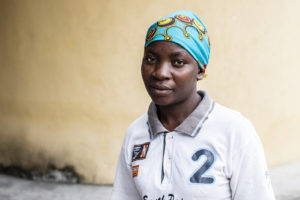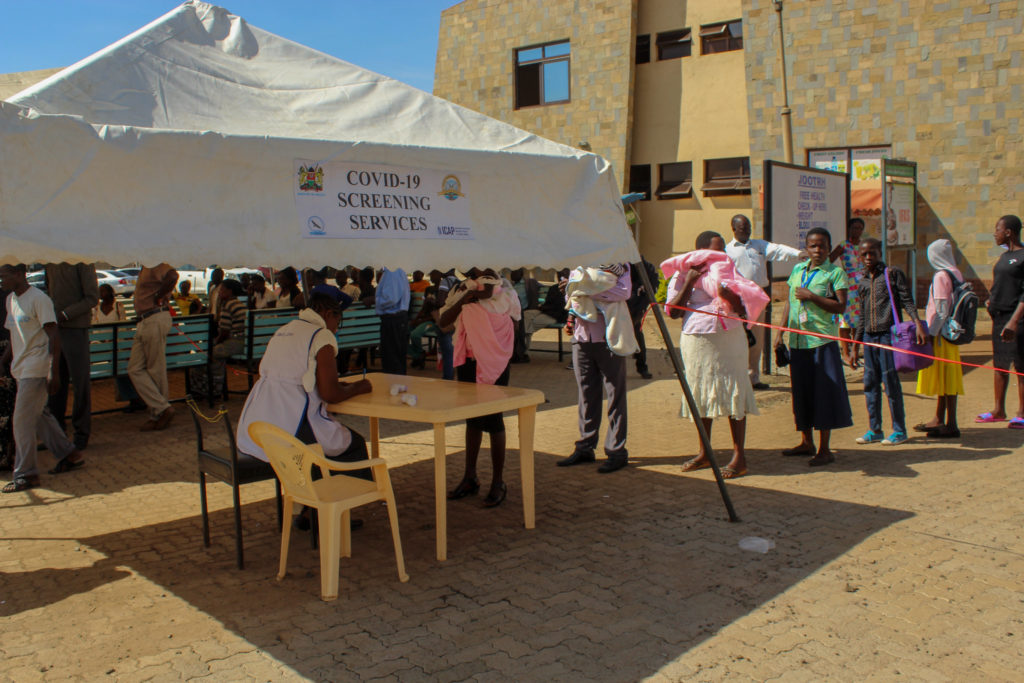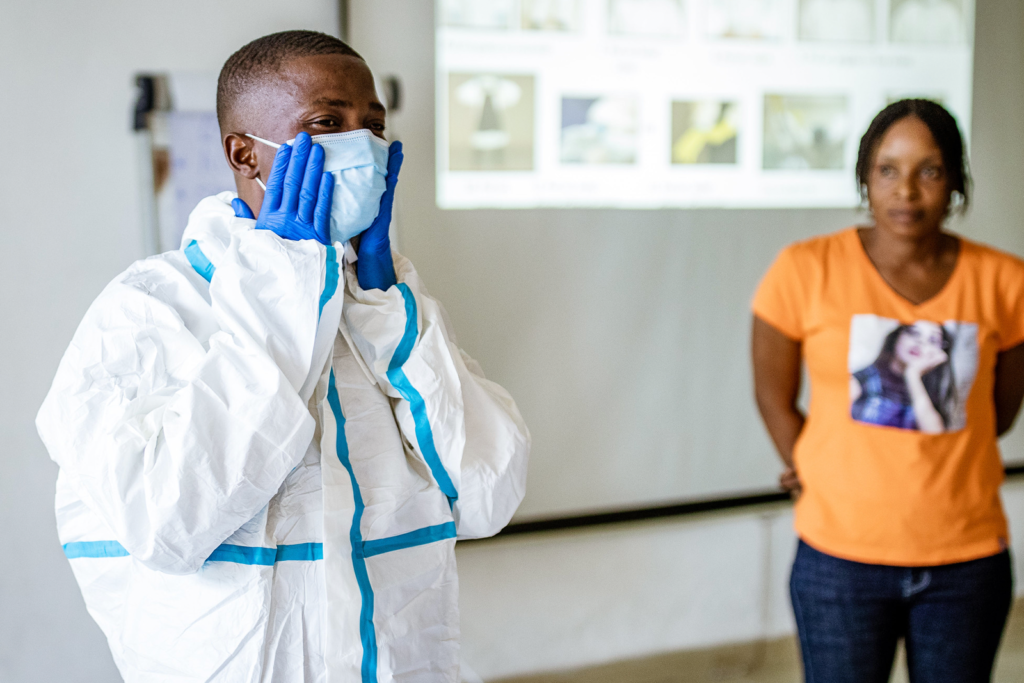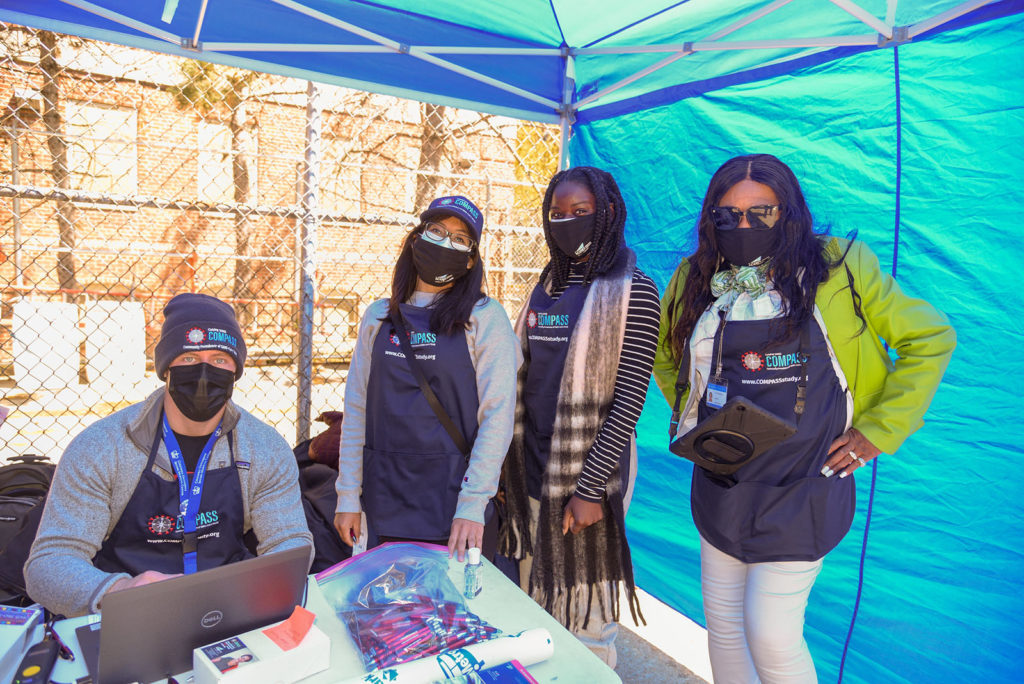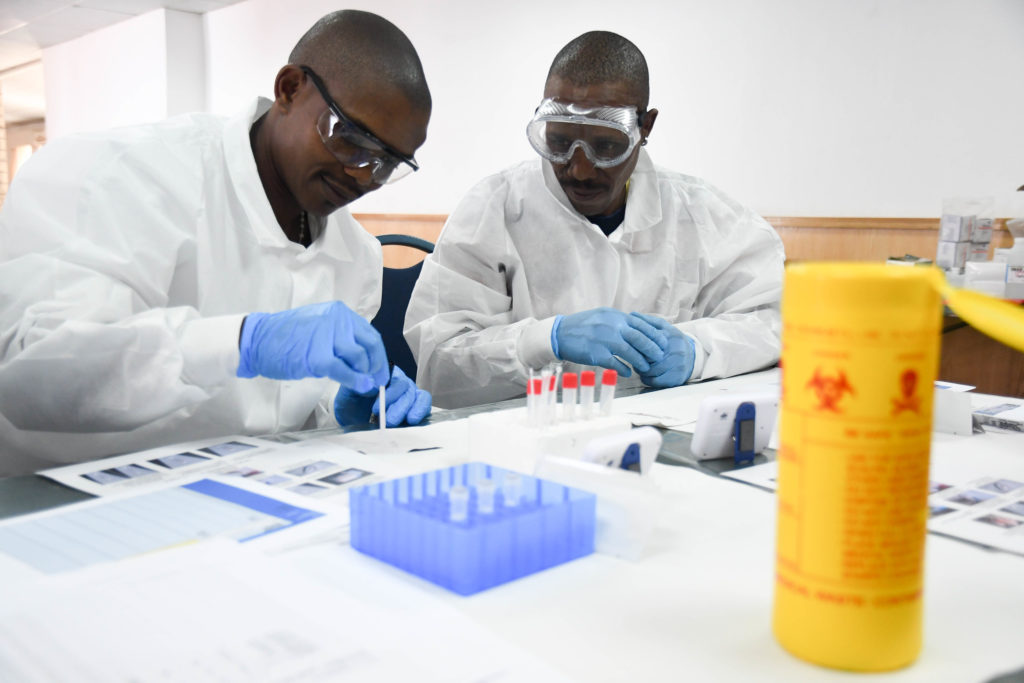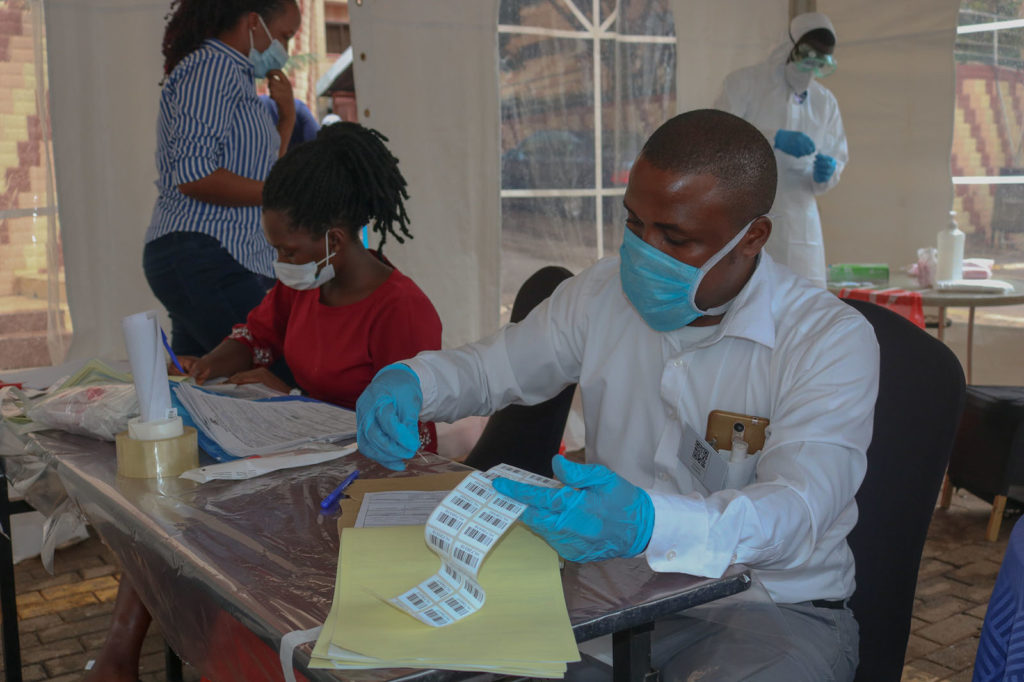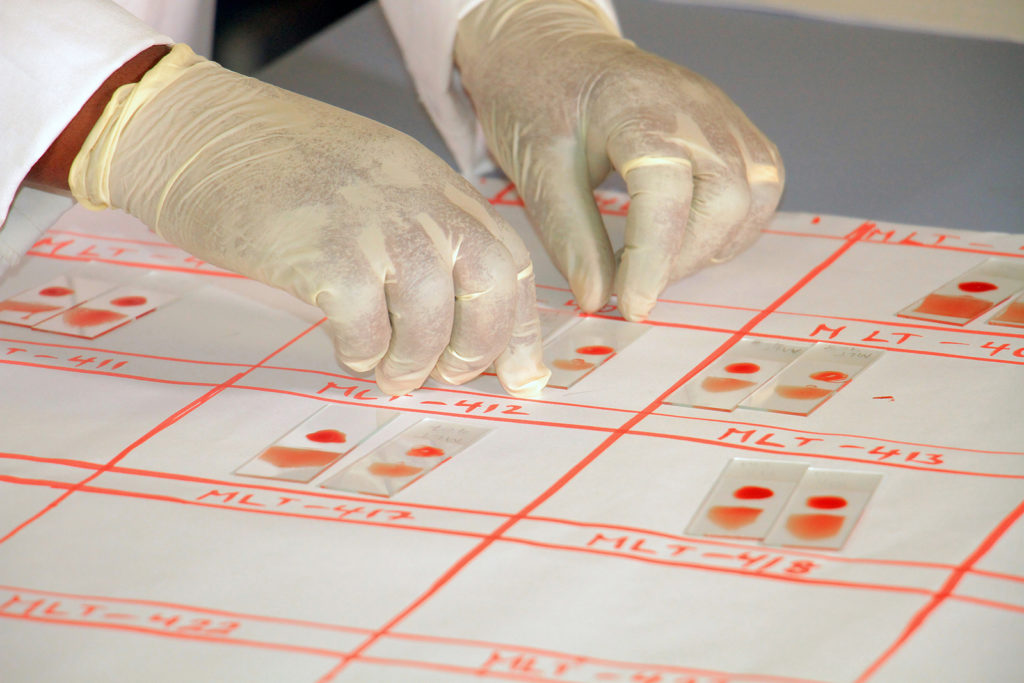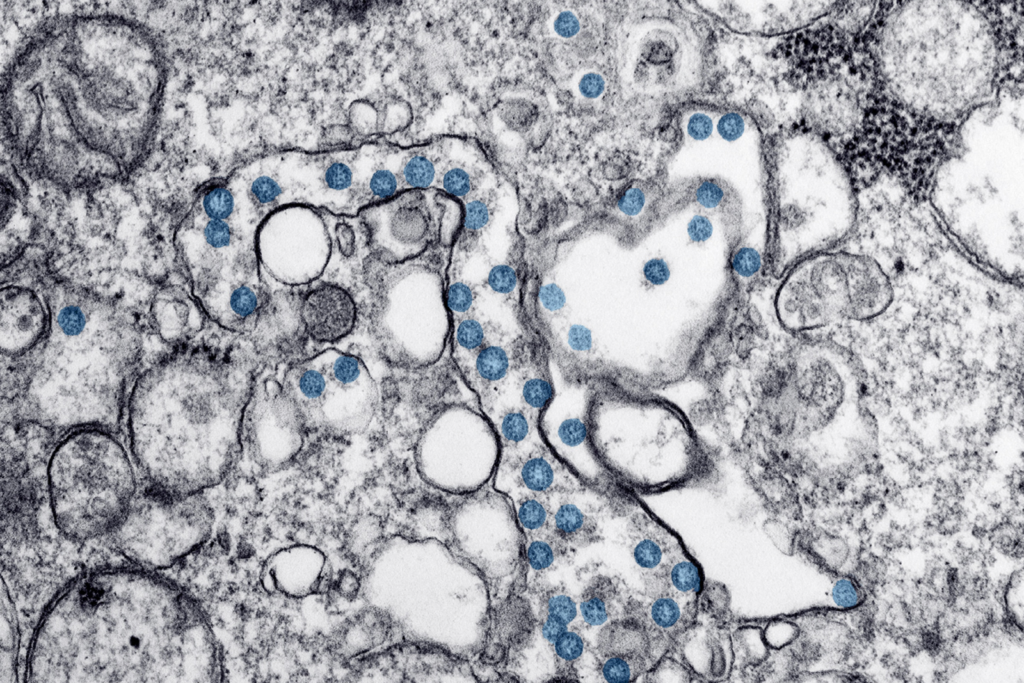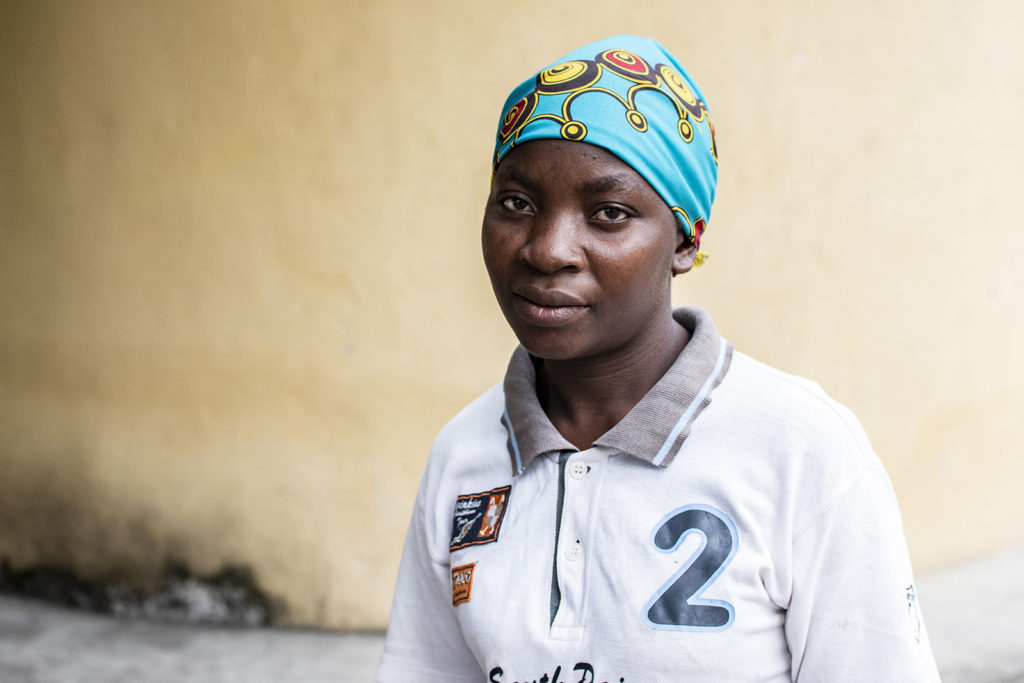Connecting Key Populations to Care
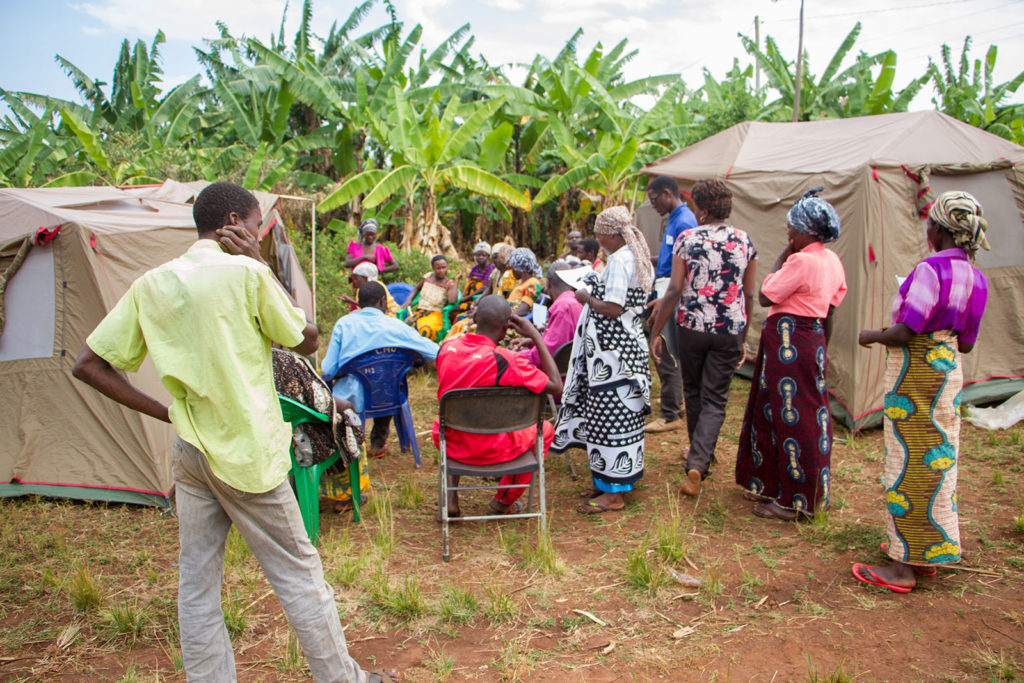
For people who suffer from stigma and fear – including sex workers, men who have sex with men, people who inject drugs, and victims of gender-based violence, overcoming barriers to accessing health care is an enormous challenge. Most at risk for HIV and sexually transmitted infections, they often face obstacles to prevention, education, testing, and treatment services. But effectively reaching these key populations is critical to end the HIV pandemic. In Tanzania, ICAP has developed and expanded innovative programs that are having a widespread impact as the country continues to advance toward epidemic control.
Like many young women from rural settlements in Kagera, a region bordering Lake Victoria in Tanzania, Kuhuru had to make her own way in the world after her parents separated when she was 15. Intending to try to earn a living selling fruit at the local fish market, she met an older man with whom she had a child. He died soon afterward and, with few economic opportunities available, Kuhuru turned to sex work to support herself and her child, increasing both her risk for HIV and the likelihood that she could transmit the virus. Although Zuhura had been sexually active for several years, she had never been tested for HIV, due to the area’s severe shortage of health care resources, her lack of money and concerns about stigma. In Kagera, young women comprise one in four new HIV cases, and ICAP has been determined to reach them.
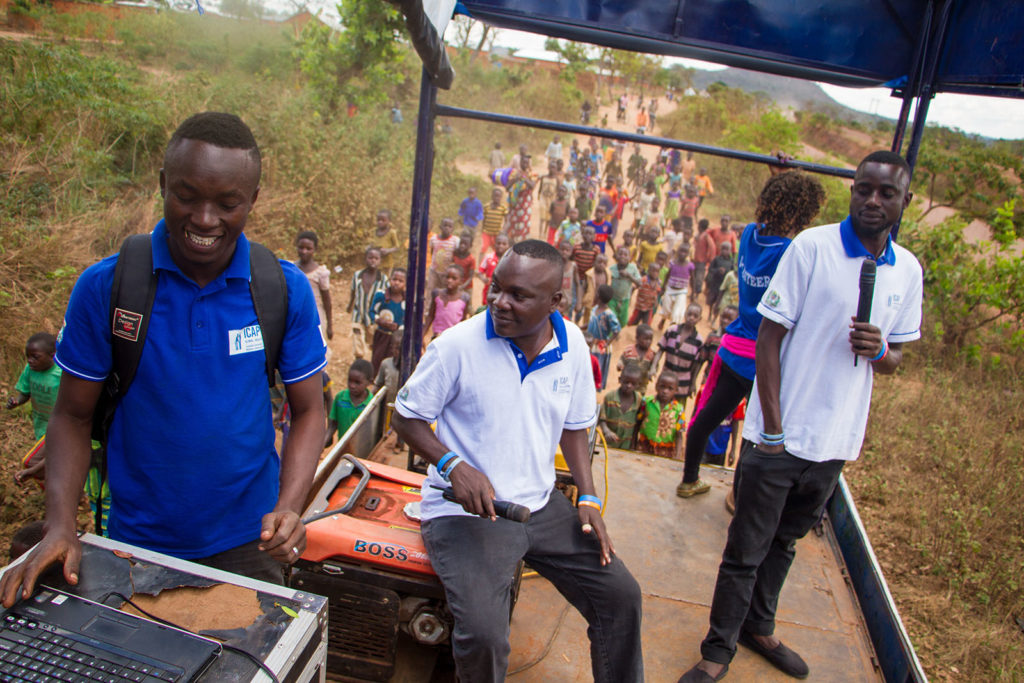 ICAP started the FIKIA project in 2016 to implement comprehensive, community-based HIV prevention, linkage, and retention services for key populations and adolescent girls and young women across Tanzania, including in Kagera. FIKIA means “to reach” in Swahili and the project’s innovative model incorporated both clinic-based and community-based peer educators and outreach specialists to bridge the gap between populations in need of HIV services and distant regional facilities. Zuhuru received HIV testing and counseling services provided by ICAP’s FIKIA project, and after discovering that she was HIV positive, she received follow-up counseling and psychosocial support from a FIKIA community outreach volunteer. Just one week later, she enrolled in care. This focused outreach and fast turnaround between testing and linkage to care is thanks to FIKIA’s unique partnership with the Regional and Council Health Management Teams, which works with ICAP to bring comprehensive and tailored health services directly to communities through a model called CTC (Care and Treatment Center) outreach.
ICAP started the FIKIA project in 2016 to implement comprehensive, community-based HIV prevention, linkage, and retention services for key populations and adolescent girls and young women across Tanzania, including in Kagera. FIKIA means “to reach” in Swahili and the project’s innovative model incorporated both clinic-based and community-based peer educators and outreach specialists to bridge the gap between populations in need of HIV services and distant regional facilities. Zuhuru received HIV testing and counseling services provided by ICAP’s FIKIA project, and after discovering that she was HIV positive, she received follow-up counseling and psychosocial support from a FIKIA community outreach volunteer. Just one week later, she enrolled in care. This focused outreach and fast turnaround between testing and linkage to care is thanks to FIKIA’s unique partnership with the Regional and Council Health Management Teams, which works with ICAP to bring comprehensive and tailored health services directly to communities through a model called CTC (Care and Treatment Center) outreach.
“Kagera region became a symbol of well-functioning CTC outreach services, and I am happy to say that Kigoma region has also implemented our CTC outreach services model.”
Jonas Kessy, MD
Regional AIDS Control
Coordinator for Kagera region
Based on its initial success in bringing HIV prevention and treatment to vulnerable young women in Kagera, FIKIA expanded in 2017 to ensure that clients who are diagnosed with HIV start antiretroviral therapy and stay on treatment. ICAP has also introduced PrEP—pre-exposure prophylaxis—which offers hope for preventing HIV infection. FIKIA meets at-risk individuals wherever they are and empowers them to protect their health by training young women and men from populations with elevated HIV risk. These peers become outreach volunteers that bring HIV prevention services to workplaces, social meeting places, informal gold mining sites, bustling urban markets, and rural villages accessible only on foot or via motorcycle to provide services in tents, vehicles, brothels, and other venues where sex workers or people who inject drugs congregate. “Before I joined the FIKIA project, I was a sex worker engaging in risky sex behaviors,” explained one outreach volunteer named Happiness. “The education I got from ICAP helped me change so now I can assist my friends to also change.”
As FIKIA has expanded in scope and scale it is offering a broader range of health services to key populations. Sex workers are also at higher risk for cervical cancer, so ICAP has been using boats to bring cervical cancer screening to small islands on Lake Victoria. By bundling together health care services for hard-to-reach key populations, FIKIA is providing the care and treatment all people deserve.
Funding: Funded by the U.S. President’s Emergency Plan for AIDS Relief (PEPFAR) through the U.S. Centers for Disease Control and Prevention (CDC)
ENGAGED
COMMUNITY-BASED
TENACIOUS
